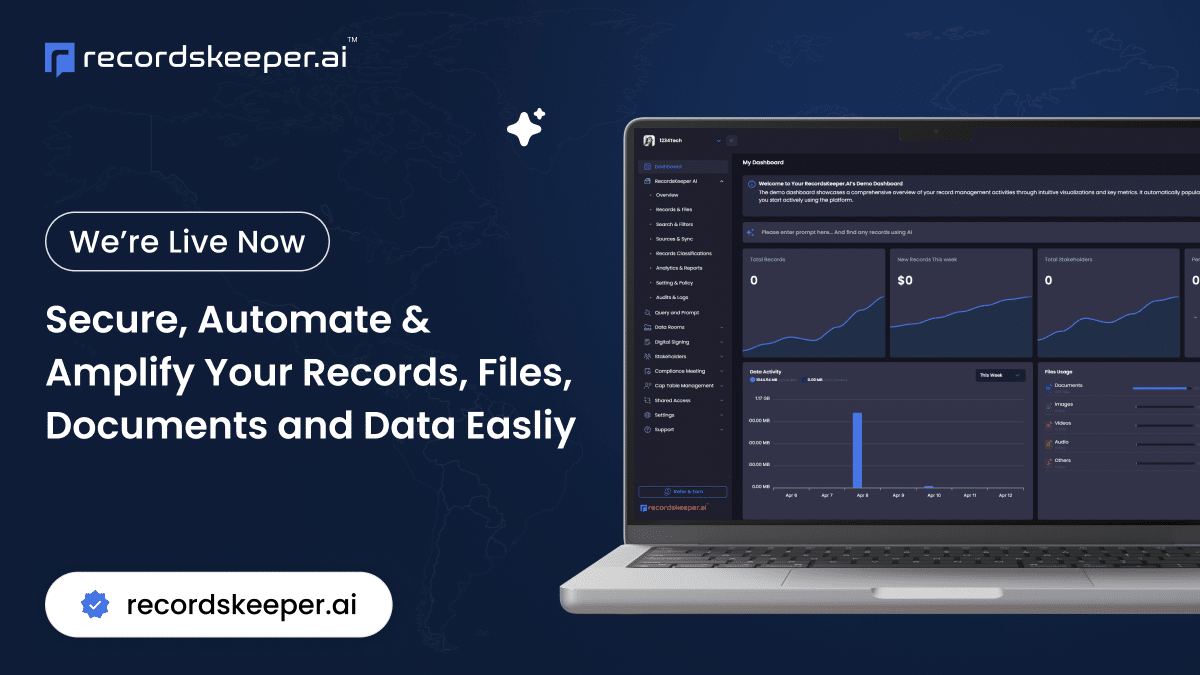Introduction
Welcome to an exciting journey through the intersection of blockchain technology and real estate, where managing property records has become more secure and efficient than ever before. In the world of real estate, accurately maintaining property records is crucial, yet the process can often become a tangled web of documentation, prone to errors and fraud. This is where blockchain technology steps in, offering a disruptive, innovative solution to these traditional challenges. Today, I’m thrilled to share how blockchain is redefining property record management, transforming the industry and delivering a competitive edge to all stakeholders involved.
Understanding Blockchain: A Quick Overview
For those new to the concept, blockchain is a decentralized digital ledger that securely records transactions across multiple computers. The brilliance of blockchain lies in its transparency, security, and immutability. Once a record is added, it cannot be altered, thereby providing a trustworthy method of data recording. These attributes make blockchain an ideal candidate for managing sensitive information, like property records.
Why Blockchain Matters in Real Estate
In real estate, property records are the backbone of any transaction. Historically, these records have been vulnerable to inconsistencies, manipulation, and fraudulent activities. With blockchain, we introduce a system where property records are digitally stored and accessible in a secure, transparent manner. Here’s why this matters:
- Enhanced Security: Traditional record-keeping methods are susceptible to tampering. Blockchain’s decentralized nature eliminates this risk by making unauthorized changes virtually impossible.
- Trust and Transparency: Every transaction, chain-verified, builds an unalterable trust-based ecosystem among stakeholders like buyers, sellers, and agents.
- Cost Efficiency: By automating and digitizing records, blockchain reduces reliance on intermediaries, cutting costs significantly.
- Speed and Efficiency: The time-consuming process of transfer becomes swift through automated smart contracts, operational at the blockchain’s speed.
Blockchain-Powered Property Records: How Does It Work?
Blockchain integrates seamlessly with real estate through smart contracts and digital ledgers. Here’s a closer look at how this transformation unfolds:
Automation with Smart Contracts
Smart contracts are self-executing agreements programmed to run autonomously when predefined conditions are met. In real estate, these contracts can facilitate transactions like title ownership transfers or leasing agreements automatically, without requiring middlemen. The implications are profound—enhanced efficiency and reduced risk of human error or manipulation.
Decentralized Data Storage
Unlike conventional databases where a single point of failure can damage data integrity, blockchain stores information across a network. With this decentralized approach, property records remain safeguarded and accessible, providing unparalleled data integrity and resilience.
Facing Challenges with a Blockchain Strategy
Adopting blockchain isn’t without its challenges. Regulatory acceptance and technological resistance often act as roadblocks. Yet, these hurdles can be transformed into stepping stones:
- Compliance and Regulations: Engaging with regulators to understand and adapt to the evolving legislative landscape is crucial.
- Education and Training: Upskilling professionals across the industry ensure smooth blockchain adoption. Providing resources and support systems can pave the way for a knowledgeable workforce.
- Scalability: Ongoing developments in blockchain solutions are gradually addressing scalability issues, making larger-scale deployment practical.
Case Studies: Blockchain in Action
Several pioneering real estate firms have already embraced blockchain with remarkable results:
- Dubai’s Government Initiative: Aiming to transfer its entire property registry to a blockchain-based system, Dubai showcases the potential for streamlined and secure property management.
- Propy’s Transaction Success: Propy, a real estate platform, enabled the world’s first blockchain-powered property transaction, offering a glimpse of blockchain’s transformative impact on real estate.
Conclusion
The future of property record management is irrevocably entwined with blockchain technology. As an innovator, I’m excited by the plethora of opportunities that blockchain brings to real estate. From security and transparency to efficiency and cost savings, blockchain delivers a substantial strategic advantage. Now is the time for forward-thinking real estate professionals to leverage these benefits actively, driving progress and fostering trust in an ever-evolving industry.
With blockchain streamlining operations, it’s not just about keeping up—it’s about staying ahead. If you’re keen to explore how cutting-edge technology can supercharge your real estate ventures, I invite you to delve deeper into the realm of blockchain and consider how platforms like RecordsKeeper.AI can assist in this transformative journey.
Thank you for joining me in exploring the amazing possibilities that blockchain unlocks in real estate. Let’s continue to innovate, explore, and lead the future of this exciting industry together.








